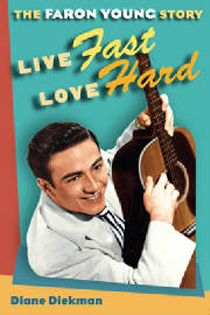
Where was I in 2002, when
Andy Andrews wrote his New York Times best seller:
The Traveler's Gift? Good Morning America endorsed it, telling all of their watchers to "READ THIS!"
I was watching Katie Couric, I suppose. Now that was a waste of time. But as I learn from Andy's book, "It was my choice, my fault, and my thinking." And it is up to me to take control of my life and make the decisions, correct those that are faulty and find the life, the success I want.
Interesting how this book came to be in my hands. I shelve books at the local library twenty hours a week. A lot of books pass through my hands, some fall down onto my head, others jump off the shelf, but rarely do I bring them home with me. Today, when I shelved another book near Andrew's book in the 813 section, I was caught by the title. No not the 'Seven Decisions that determine personal success' that is printed above the title, but rather the 'Traveler's Gift' portion.
It may be a
Gabaldon thing and the whole obsession I've had lately with a young English woman traveling from the 1940s to the 1750s that the term 'traveler' brought to mind. Of course this was in the nonfiction not the fiction section of the library, and that may have been what motivated me to read the flyleaf blurb:
"Forty-six-year-old David Ponder feels like a total failure. Once a high-flying executive in a Fortune 500 company, he now works a part-time, minimum wage job...."
OK, that sounded like a downer, so yesterday. Old news.
I skimmed to the part: "But an extraordinary experience awaits David Ponder. He finds himself traveling back in time, meeting leaders and heroes at crucial moments in their lives...."
That's probably what grabbed me. I remember wondering, "Just who would I turn to for advice if I could ask anyone throughout history?"
Sadly my mind went blank at that point. Who would I want to advise me?
Eleanor Roosevelt comes to mind, yet I'm not sure she wasn't as much a pawn as anyone and she couldn't stand up to her own mother-in-law and her husband cheated on her with his secretary and for heaven sakes he was crippled from polio.
I'll admit that I'm only on the first of the seven decisions that determine personal success. But I am nodding in agreement with the author's choice of advisers:
Harry Truman. Nothing truer was ever written or spoken than:
The Buck Stops Here.
Yep, a real tough love kind of statement for all of us who want to protest and say, "I'm a victim here -- it wasn't me who invested in junk bonds, sold the company to someone who gutted it, caused the jobs to disappear...."
Our choices or failure to choose still speak for the way we live our lives. Accept that "The Buck Stops Here" and then make your choices.
I particularly like the statement in the book that says:
"From this moment forward, I will accept responsibility for my past. I understand that the beginning of wisdom is to accept the responsibility for my own problems and that by accepting responsibility for my past, I free myself to move into a bigger, brighter future of my own choosing."
OK, it sounds a bit Polyanna-ish. But there's merit and reason and most of all, there is hope in this statement. Hope can be in short supply when you live like a victim. Of course it is also a good way to live if you don't like to take responsibility for your own actions.
Funny how books seem to appear all at the same time and their diverse messages converge into just what I need to hear.
Today's books are as diverse as any could be. The next is a book of poems for children.
"Water Music" by
Jane Yolen. She captured my attention with her first poem:
"Reflections". Only eight lines beginning with "Water is a magic mirror...." and ending with "What is up is down, What is far is near; A truth so fragile Only Eyes can hear."
Poetry makes me think in new ways, look at things differently, consider eyes that hear. How is this connected to "The Traveler's Gift"? Darn if I know.
Sometimes the bits of information fit perfectly and I can see exactly what I am meant to learn. Other times, it takes a bit of pondering -- like David Ponder must do as he travels toward truth. If I were to hazard a guess, I'd say that I need to look at my life, things, events, people in a new way and see how they reflect upon me and how I reflect upon them.
The third portion of my truth trilogy was found in
Donna Tartt's novel
"The Secret History." After a beautifully written page and a half, the narrator comments:
"I was consumed by a more general sense of dread, of imprisonment within the dreary round of school and home: circumstances which, to me at least, presented sound empirical argument for gloom.... I felt things would doubtless continue in this depressing vein as far as I could foresee. In short: I felt my existence was tainted, in some subtle but essential way."
I realize how this fits with the first book, that sense of helplessness, victimization, being caught in a web that holds me stickily in place and won't allow me to escape.
Perhaps the most fun of this exercise is discovering that random books brought together can present you with a new perspective, surprise you with unexpected revelations or at the least, introduce you to new authors. It isn't necessary to work in a library to do this exercise. Peruse your own book shelves and choose a few books and passages. Maybe try it at one of the book stores or when you're visiting the library -- let your hand stray and follow its lead.
This journey doesn't stop here for me -- I plan to finish reading "The Traveler's Gift" and buy a few copies to give as gifts. And I am totally committed to reading as much of Donna Tartt's writing as I can -- she has such an exquisite voice. And I will be reading and rereading and sharing the poems, even if they are for kids.
 This week the members of the practice list on the Internet Writing Workshop have been submitting their versions of fiction, mostly fiction, based upon the assignment to focus on dissimulation. It sounded simple enough: "In 400 words or less, create a scene in which a character, in the course of conversation, says one thing while thinking another." It is another way of saying 'hypocrisy.'
This week the members of the practice list on the Internet Writing Workshop have been submitting their versions of fiction, mostly fiction, based upon the assignment to focus on dissimulation. It sounded simple enough: "In 400 words or less, create a scene in which a character, in the course of conversation, says one thing while thinking another." It is another way of saying 'hypocrisy.'






















